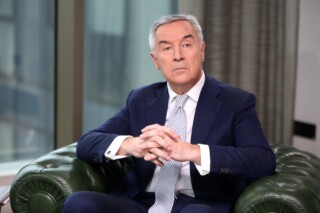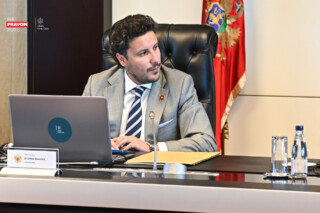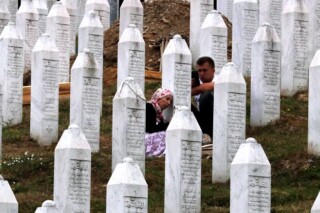It is very hard to imagine that any candidate country is satisfied with the negotiations. However, I believe that the co called “enlargement fatigue” phase has to transform into the new activism. What will be the enlargement dynamics like, that will greatly depend on the candidates, says in the interview for Pobjeda Mr Tonino Picula, EP Rapporteur for Montenegro.
Elections in MNE are scheduled for 30 August, in a very difficult moment for Montenegro, not only because of the epidemic but also because of the political ambitions of the Serbian Orthodox Church which has been jeopardizing Montenegro’s stability by organizing political protests. What’s your comment on that?
Mr Picula: The forthcoming elections will be a very important test for Montenegro. The factors you cited could indeed be serious challenges in the election process. But these factors are not the only ones. As you know, one of the key recommendations of my Report on WB enlargement is strengthening independence of media and rule of law, as well as democratic procedures.
The increase in the number of infection sin MNE concerns me. Elections must be held with strict adherence to adequate epidemic measures.
As far as Montenegro-religious communities relations are concerned, I would like to remind you of June last year and the fact that Venice Commission adopted positive opinion on the proposal for the Law on Freedom of Religion. I would take this opportunity to call on Montenegrin citizens not to let themselves be drawn into the whirl of political conflicts in which religion is just a motive under mask.
We have opened the last negotiating chapter, but the most important part of work is yet to come. Is this proof that the enlargement process will have satisfactory dynamics for candidate countries?
Mr Picula: As rapporteur of the EP, I am very glad that Montenegro finally opened the last negotiating chapter. That really is a signal that the enlargement process will continue and that the EU realized the importance of positive actions in its neighborhood.
Despite the unprecedented COVID-19 crisis which will mark this and even years to come, this comes in the last phase of the Croatia’s presidency over the EU Council. I believe the dynamics will continue with opening inter-government conferences with North Macedonia and Albania. We should not forget German support for enlargement. Soon, Slovenia will take over the presidency. I think that’s great chance for Montenegro.
This pandemic has shown that big, global, health crisis require joint actions and cooperation. By helping poor countries, economically stronger countries contribute to global well-being and protection of public health. It’s important that the EU realized that on time and ensured more than €3,3 billion in money and medical material for WB countries.
It is very hard to imagine that any candidate country is satisfied with the negotiations. However, I believe that the co called “enlargement fatigue” phase has to transform into the new activism. What will be the enlargement dynamics like, that will greatly depend on the candidates.
Serbia’s president said that actors form the region were involved in protests in Serbia and then Serbian tabloids accused Montenegro of being involved. Montenegrin officials denied such claims. How can region go forward with such irresponsible behavior of specific leaders?
Mr Picula: Unfortunately, Croatia is the target of similar, unfounded accusations aimed at spreading disinformation, especially through tabloids. I was also attacked by Prime Minister Brnabić with a set of incoherent accusations. That only confirms that the regime in crisis looks for legitimacy in making up enemies. In such serious and difficult social and economic crisis, it is necessary to demonstrate state capabilities, cooperation and openness.
There’s ample evidence that Russia has its part in all tensions in the region… Do you see Russian influence in protests in Belgrade or is that really citizens’ dissatisfaction with the country’s response to the epidemic?
Mr Picula: My impression is that protests really started as justified dissatisfaction of Serbia’s citizens. But when Belgrad e tabloids published headlines accusing Russian agents of riots, I linked that to possible warning for Mr Vučić to keep the positions in the lead-up to his travel to the West.
The problem of the influence of Russian and pro-Russian, the so called proxy political agents is definitely present in the EU. From fake news and disinformation campaigns during election process in the EU member states, to financing campaigns of right-wing populist candidates, that influence is visible and registered.
What’s your comment on the fact that there are still those who deny the genocide in Srebrenica?
Mr Picula: There are several lines of tragedy in that event, as it’s distant past. There are families of more than 8.000 of victims.
It is really a bitter cynicism to claim that systemic killing of 8,000 people with the aim of eradicating them from a territory did not happen at all. That tells that there’s still a lot to be done in the fight for the truth. Without truly facing the past as it happened, it is difficult to build future.
The role of certain authoritarian regimes in the entire story is shameful. I emphasized clearly in my address during plenary session last week that it is our duty to defend truth and not allow the crime to triumph. We owe that to the victims in Srebrenica, Ovčare and other mass scaffolds.




